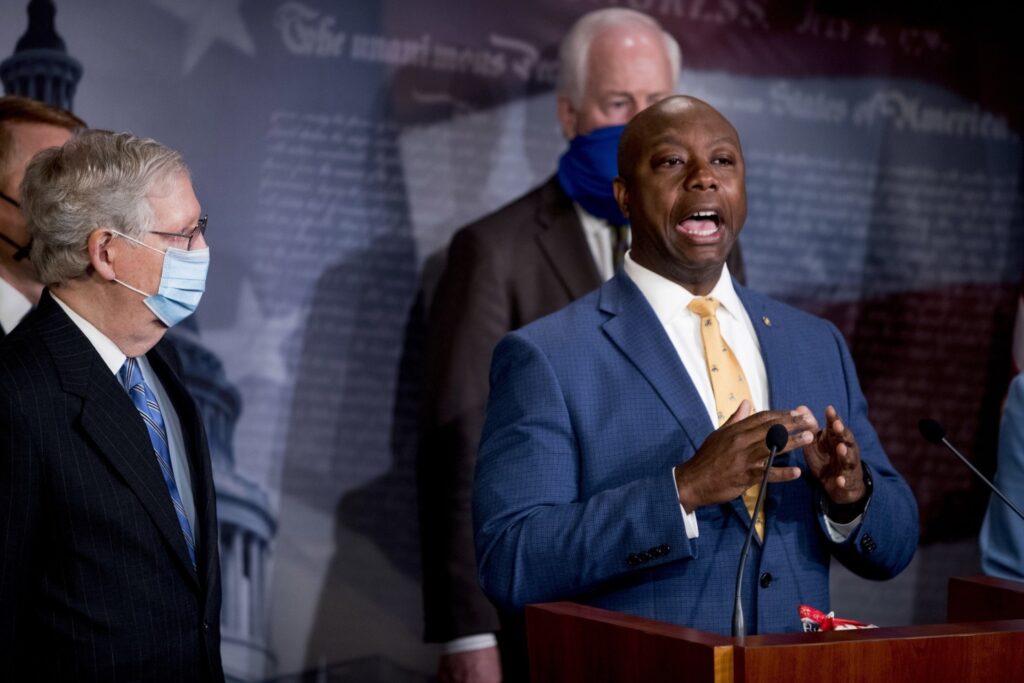
A collision in Congress could set the stage for meaningful progress on nationwide police reform
Both Democrats and Republicans agree that there needs to be reform following George Floyd’s murder, but disagree on how much.
Senate Republicans, standing behind the leadership of South Carolina Senator Tim Scott — their sole Black member — introduced the Justice Act on June 17.
The second take on police reform — after House Democrats introduced their own last week — is not as sweeping or definitive as the Democrats’, but does attempt to reach across the aisle on a few issues.
Regarding lynching, Republicans have appeased their Democratic colleagues by making it a federal hate crime in the Justice Act. The package also includes launching a study on the social status of black men and boys in the country called for by House Speaker Nancy Pelosi.
There is also a bipartisan proposal included that would establish the Criminal Justice Commission Act, which would extend funding streams to federal law enforcement programs like COPS — which encourages community policing through various ways at the local level.
In the announcement press conference on June 17, Scott shared his own experiences being profiled by police and struck a reassuring tone when addressing the families of those killed by police.
“We hear you,” he said.
Senate Majority Leader Mitch McConnell directed his comments at his Democratic colleagues, communicating a message of bipartisanship and enacting a swift schedule by opening the floor for debate on the bill next week.
“We’re serious about making a law here,” he said.
Still, those debates set to start next week will be tense.
RELATED CONTENT
The Democratic bill, known as the Justice in Policing Act — also set for a vote in the House next week — draws much harder lines in the sand of nationwide police reform.
In one section of difference between the bills, Democrats demand a hard ban chokeholds across the country, while Republican legislation only encourages local police departments “do away” with the practice under the potential risk of losing federal funds.
Many cities across the country already have this ban in place, and others are in the process of passing legislation.
The Democrats’ bill also wants a hard ban on no-knock warrants in the aftermath of Breonna Taylor’s death in Louisville, but Republicans want to establish the Breonna Taylor Notification Act, which would track uses of no-knock warrants across the country.
The Justice Act also calls for more reporting from law enforcement when compiling use of force reports under the George Floyd and Walter Scott Notification Act.
As has been the story of Congress in recent memory, these reforms are just talk right now. But should Democrats and Republicans decide to work together on an issue they both agree needs to be reformed, words can transform into action pretty quickly, especially if political lives are on the line.











LEAVE A COMMENT: